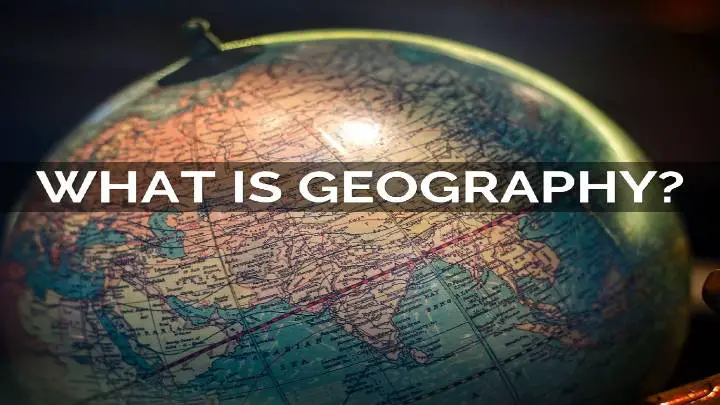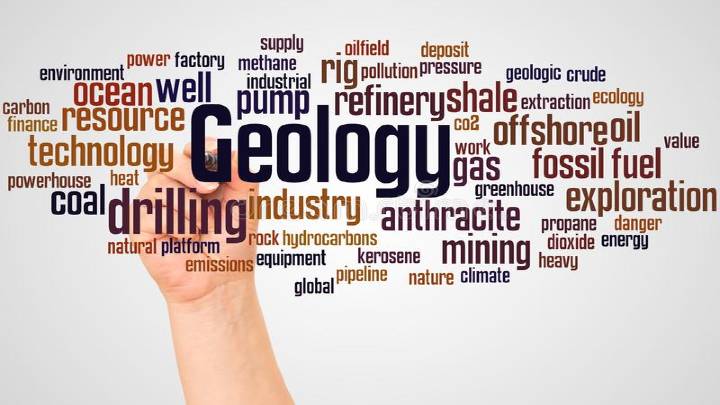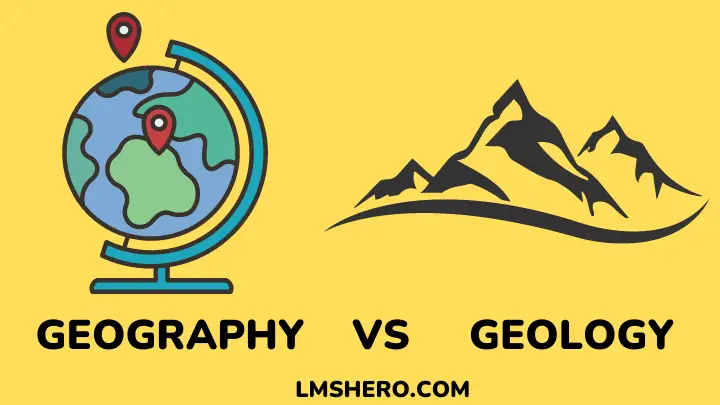Geography and geology are two disciplines that are often confused or used interchangeably. While they both specialize in one thing, which is the Earth as we know it, they are two completely different disciplines.
Well, geography is the science that deals with the topography of the Earth. Geology, on the other hand, is a science that studies the structure and formation of the Earth.
In this article, I will talk about what each discipline entails, the differences, and which of the two is a better choice for you.
What does geography entail?

Geography is a scientific discipline that focuses on the description of the Earth, its inhabitants, properties, places, environment, and phenomena.
The essence of geography is to study why you find things where they are and how these things change or develop over time. Additionally, geography seeks to find out the cause and effect amidst any two phenomena.
Geography originated from two Greek words, Geo and Graphos, which means Earth and description. The term geography was first used by a Greek polymath called Eratosthenes.
Geography consists of 2 main branches. They are;
1. Human geography
Much like the name implies, human geography is a branch of geography that focuses on the study of humans. That is the people who inhabit the Earth, their culture, and their interaction with the natural environment.
Human geography has various sub-branches such as social geography, political geography, population and settlement geography, economic geography, and historical geography.
2. Physical geography
Physical geography discusses the processes and patterns of the natural environment. That is the shape of landforms and the environment, features or characteristics of flora and fauna, and the spatial distribution.
Physical geography also has various sub-branches which include geomorphology, climatology, hydrology, and soil geography.
What does geology entail?

Geology is an Earth science that studies the physical substance or material that constitutes mother Earth as we know it. It also studies organisms that live on the planet and those that lived earlier.
Geology is used in evaluating resources and understanding environmental problems and natural hazards as well.
The term geology is coined from two Greek words, “Ge and Logia,” which means “earth and the study.”
Geology has two basic branches. They are;
1. Physical geology
Physical geology is all about the study of rocks, volcanoes, mountains, oceans, and seas. It talks about their characteristics and the processes they undergo that define the final structure of the Earth.
2. Historical geology
Just like the name implies, historical geology is concerned with the history of the Earth. Historical geology studies the history of life that once existed and those that are in existence on the planet now.
Geography vs geology: What are the differences between them?
As I mentioned earlier, these two disciplines are at times, mixed up as they study the Earth. Nevertheless, they are different from each other. Below are some of the key differences between geography and geology.
1. Focus
Although their primary goal is studying the Earth, they have a specific focus. Geography is a scientific discipline that talks about the relationship between living beings and their surroundings.
Geology, on the other hand, talks about the land directly underneath our feet. It talks about the structure and composition of the Earth, as well as the current status and future implications.
2. Subject matter
Geography records the area of land, length of mountain ranges, and coastal lines. Additionally, forms of water sources and their location.
Geology, on the other hand, researches about the surface of the land underneath our feet. Particularly on rocks, the various types, energy sources, their sustainability, and climate changes and their impact on the environment.
Geography vs geology: Which of these two disciplines is better for you?
Now you know what these two disciplines entail and how they differ, let’s see how to determine which is best for you.
If you are more of a scientific person and you are fascinated with the Earth’s structure and all of the processes that affect it, geology would be a good fit for you.
Geology incorporates components of chemistry, physics, mathematics, and biology. As you will be learning scientific foundation and practical applications in most geological studies.
On the other hand, if you are less scientific and more interested in surface processes and interacting with people, then geography would be a good fit for you.
The job outlook for Geography and Geology majors
Geographers
According to the Bureau for Labor Statistics, the demand for geographers will have little or no change in the next ten years. Nevertheless, the BLS states that over 100 openings will be made available each year. Geographers also earn around $85,220 per year.
The job outlook for geologists, on the other hand, will increase by 5% in the next 10 years. With 2,400 openings made available each year. The BLS also stated that geologists earn around $83,680 per year.
FAQs
Which is harder, geography or geology?
Generally, geology is considered to be harder. This is because, for you to study geology, you need a good understanding of physics, chemistry, and mathematics.
What is the importance of geography and geology?
The main importance of geography and geology is that they give us a better understanding of the earth and its components.
How do geologists and GIS differ?
Geologists study the Earth’s history and future implications, GIS (geographic information system), on the other hand, is a type of system for capturing and displaying geographic data.
Conclusion: Geography vs geology
Geography and geology are two disciplines that are highly regarded. They are often misunderstood or referred to as the same discipline, but they are both different.
The study of geology will give you more insight or knowledge of the world that surrounds us, its history, and its evolution. Geography, on the other hand, gives you insight into places and the relationship between the inhabitants of a location and their environment.
If you are interested in natural resources and have a strong understanding of science subjects, you should consider studying geology. While if you do not have little or no understanding of core science subjects, then a career as a geographer would be a good fit for you.
I hope you enjoyed reading this article, if you did, you should also see how long a Bachelor’s Degree is.
Thanks for reading.






